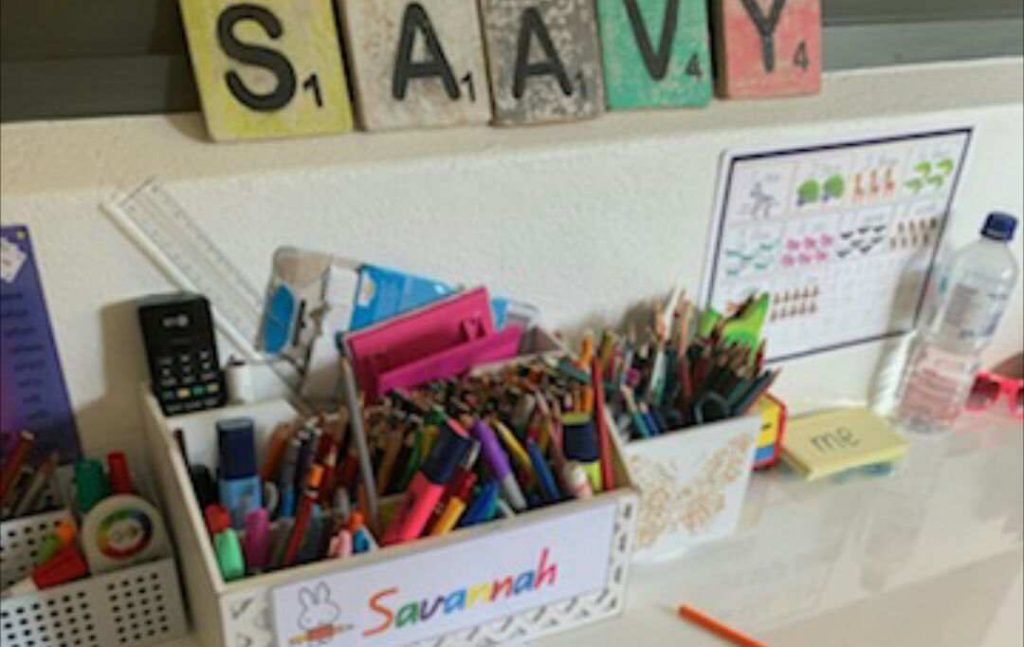So you’ve decided to homeschool your child. Congratulations!
It’s a big decision, but it can be an incredibly rewarding experience for both you and your child. But where do you start? How do you go about enrolling in homeschool?
This guide will walk you through the process step by step.
How to Enrol in a Homeschool Program
If you’re looking into homeschooling as an option for your child, the first step is to enrol in a homeschool program. There are many programs available, so do your research to find the best fit for your family.
The next step is to register with your state’s homeschooling authority. This will ensure that you comply with the state’s homeschooling laws.
Once you’re registered, you’ll need to develop a curriculum for your child. This can be done by using a pre-made curriculum, creating your own, or a combination of both.
Finally, you’ll need to keep track of your child’s progress and submit annual reports to the state. This will ensure that your child is on track and progressing properly.
Enrolling in a homeschool program is the first step to getting started with homeschooling. By doing your research and registering with the state, you can be sure that you’re providing your child with a quality education.

What Subjects are Required to be Covered in Homeschooling
The homeschooling process can seem a bit daunting at first, but it doesn’t have to be. Enrolling in a homeschool program can be a great way to ensure that your children receive the best education possible.
There are a few things that you will need to take into consideration when enrolling in a homeschool program, such as what subjects are required to be covered. Here is a look at 10 of the most important subjects that should be included in any homeschool curriculum:
1. English Language
This subject is essential for all students, regardless of whether they plan on attending college or not. The English Language covers a variety of topics, including reading, writing, grammar, and literature.
2. Mathematics
Math is a subject that all students should study. It covers a wide range of topics, such as algebra, geometry, and calculus. Math calculations are used every day of our lives in some form. All children must be exposed to the basics of math. This is especially important if further education in University or college is planned for the student’s future.
3. Science
Science is another important subject for all students. It helps them to understand the world around them and how things work. Essential if higher education is planned for the future.
4. Social Studies
Social study is a broad subject that covers a variety of topics, such as history, civics, and geography. Students need to learn about the world around them and how it has changed over time.
5. Foreign Language
Learning a foreign language can be beneficial for students in several ways. It can help them to better understand other cultures and to communicate with people from other countries.
6. The Arts
The arts are an important part of any education. They can help students to express themselves and to develop their creative skills.
7. Physical Education
Physical education is important for all students. It helps them to stay physically active and to develop healthy habits.
8. Technology
Technology is a rapidly changing field, and students need to stay up-to-date on the latest advances. This subject can help them to better understand how to use technology and apply it in their everyday lives.
9. Health
Health is an important subject for all students. It helps them to understand how to maintain their health and make healthy choices.
10. Business
Business is a broad subject that covers a variety of topics, such as marketing, finance, and management. Students need to understand the basics of business so that they can be successful in their future careers.
Enrolling in a homeschool program is a great way to ensure that your children receive a well-rounded education. These 10 subjects should be included in any homeschool curriculum to ensure that your children are prepared for success in the future.
How to Find Curriculums for Homeschooling
There are many ways to find curriculums for homeschooling. One way is to look online. Many websites offer free or low-cost curriculums.
Another way to find curriculums is to ask other homeschoolers for recommendations. Many homeschoolers are happy to share their favourite resources with others.
When choosing a curriculum for homeschooling, it is important to consider the learning style of your child. Some children are visual learners and do well with hands-on materials. Others are more auditory learners and prefer to learn through listening to lectures or audiobooks. Still, others are kinesthetic learners and need to be up and moving around to understand concepts. Knowing your child’s learning style will help you choose a curriculum that is likely to be successful.
It is also important to consider your own teaching style when choosing a homeschooling curriculum. Some parents prefer to use a more traditional approach, with textbooks and workbooks. Others prefer a more relaxed approach, using games and activities to teach concepts. There is no right or wrong way to homeschool, so choose a curriculum that will work well for both you and your child.
Finally, don’t forget to have fun! Homeschooling should be an enjoyable experience for both you and your child. Choose curriculums that you will both enjoy and that will help your child to learn and grow. With a little planning and effort, you can find the perfect homeschooling curriculum for your family.
Homeschooling Tips for Parents
There are many reasons why parents may decide to homeschool their children. Maybe they feel that their local school isn’t providing good enough, or maybe they want to have more control over what their children are learning. Whatever the reason, homeschooling can be a great option for parents who want to take charge of their child’s education.
Here are a few tips for parents who are considering homeschooling:
1. Do your research – Homeschooling is not for everyone, and it’s important to make sure that it’s the right fit for your family before making the commitment. There are a lot of resources available online and in libraries that can help you learn more about homeschooling, and it’s a good idea to talk to other parents who have already been through the process.
2. Create a schedule – One of the benefits of homeschooling is that you can tailor the schedule to fit your family’s needs, but it’s still important to create some structure. Having a daily or weekly schedule will help to keep everyone on track and make sure that all of the necessary subjects are being covered.
3. Get organized – In order to homeschool successfully, you’ll need to be organized. This means keeping track of your child’s progress, as well as any materials and resources that you’ll need. There are a variety of homeschooling software programs available that can help with this.
4. Set aside time for socialization – It’s important to make sure that your child is still getting opportunities for socialization, even if they’re not in a traditional school setting. There are a number of ways to do this, including joining local homeschooling groups or participating in extracurricular activities.
5. Be prepared for challenges – Homeschooling can be challenging at times, both for parents and children. Be prepared to face some obstacles along the way, and remember that it’s okay to ask for help when you need it.
Homeschooling can be a great option for families who are looking for an alternative to traditional schooling. By doing your research, getting organized, and being prepared for challenges, you can set your child up for success.
Homeschooling Resources
There are many resources available to help you get started with homeschooling. The internet is a great place to start, as there are many websites and forums devoted to homeschooling. You can also find local support groups or online communities of homeschoolers who can offer advice and support.
Another great resource is your local library. Many libraries offer books and materials specifically for homeschoolers. They can also be a great place to find resources for your curriculum.
There are also many companies that specialise in homeschooling materials. These companies usually have websites where you can browse their products and order online.
When you first start homeschooling, it is important to do your research and find the resources that will work best for you and your family. With a little effort, you should be able to find everything you need to get started on your homeschooling journey.
Why Homeschooling is So Popular
Homeschooling is an educational approach that allows children to be taught at home, under the supervision of their parents or guardians is growing in popularity.
There are many benefits to homeschooling, including customized instruction, a greater focus on academic achievement, and enhanced family relationships.
Academic Achievement
One of the primary benefits of homeschooling is that it can lead to greater academic achievement for children. Because homeschooled children receive customized instruction that is tailored to their individual learning needs, they often progress more quickly than their peers in traditional schools. In addition, homeschooled children typically have more opportunities to pursue advanced topics and enrichment activities than their counterparts in public or private schools.
Focus on Individual Needs
Another key benefit of homeschooling is that it allows parents to focus on the individual needs of their children. In a traditional school setting, teachers must cater to the needs of a large group of students, which can make it difficult to give each child the attention they deserve. However, homeschooling provides parents with the opportunity to design a curriculum that meets their child’s unique needs and abilities. This customized approach to learning can help children thrive academically, socially, and emotionally.
Family Relationships
Homeschooling can also strengthen family relationships. Because homeschooled children spend more time with their parents or guardians, they have the opportunity to develop closer bonds. In addition, homeschooling can give families more time to spend together on shared interests and activities. Ultimately, the increased communication and collaboration that homeschooling fosters can lead to a more close-knit family unit.
How to Succeed When Homeschooling Your Children?
There are many different ways to homeschool, and it can be tailored to fit each child’s needs. Parents who homeschool their children often find it to be more convenient and affordable than sending their children to traditional schools.
If you want to learn how to do this from someone who has actually done it. Twice! Now you can. After homeschooling our two daughters through to university, I now have the time to show others how to do it successfully. And hopefully, save some of you the ugly side of homeschooling.
For a limited time – I’m offering massive discounts for any first-time purchase. Use code ( first20off ) at checkout.

How to Homeschool – The Good the Bad and the Ugly Realities of Doing it Successfully
This is the book I wrote to my younger self about doing it successfully. Take it from someone who has been there.
It is everything I have learned from my 18 years as a full-time educator, mum, and housewife.
It is everything you need to get started.

About The Author
My name is Ursula Boston. I’ve been educating my daughters as a proud homeschool mum for nearly 20 years. Alongside managing our household and small business from home.
If you want to learn how to do this from someone who has actually done it. Twice! I will show you HOW.







